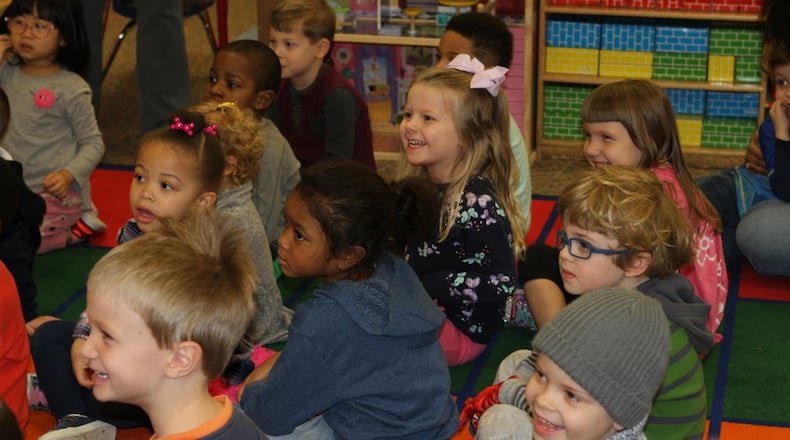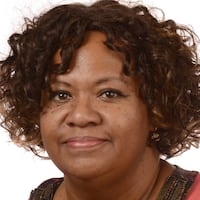Years ago when children were diagnosed as infants or toddlers with special needs, whether those were physical, emotional or developmental, they were often separated from “normal” kids.
That's changed over the years, and Georgia's Department of Early Care and Learning (DECAL) devotes a week each February to reinforcing the message that special-needs pre-schoolers are just like others, and need to be included.
DECAL had always celebrated national Inclusive Schools Week, in December. It was an opportunity for parents, day care providers and the public to see the benefits of inclusion from birth on. In 2015, it launched a program to promote inclusive practices in the state's early learning environments. What could be a better time than Valentine's Day? Now, it devotes the week of that holiday to the theme.
“These last four years we’ve gained a lot of traction,” said Brandy Locchetta, director of inclusion and behavioral support. “We have more providers who are aware of the program and more are using social media to stay connected.”
In the week, “Marvelous Me Monday” promotes individuality and “Teamwork Tuesday” shows kids how to work together to accomplish a goal, with lessons simple enough to include all children. DECAL Commissioner Amy M. Jacobs and DECAL’s official mascot visit child-care programs across the state to read books that celebrate diversity and promote friendship.
Susan Adams, deputy commissioner for Georgia’s pre-K program and instructional supports, hopes the week shows child care providers that working with special-needs children doesn’t need to be complicated and expensive. “We make training resources available early on,” she said. DECAL has a team of regionally based specialists who provide resources, strategies and support.
And beginning this year, a portion of $93 million in discretionary funding from the Child Care Development Fund will let the agency expand inclusion services.
Jodi McNamara, a pre-K lead teacher and Georgia Pre-K teacher of the year for 2017-2018, is a staunch advocate for classroom inclusion.
“Everybody brings different skills and different abilities to the class,” she said.
Most observers have no idea which pre-schoolers in her class have special needs or are general education students. “I tell people I have 19 students,” said McNamara. “I don’t differentiate between abilities.”
“Everyone has jobs they must perform and sometimes everyone needs help from a buddy,” she said. “It all starts with attitude.”
About the Author
Keep Reading
The Latest
Featured



